Recent Articles
Popular Makes
Body Types
2025 Volvo XC60 Road Test and Review
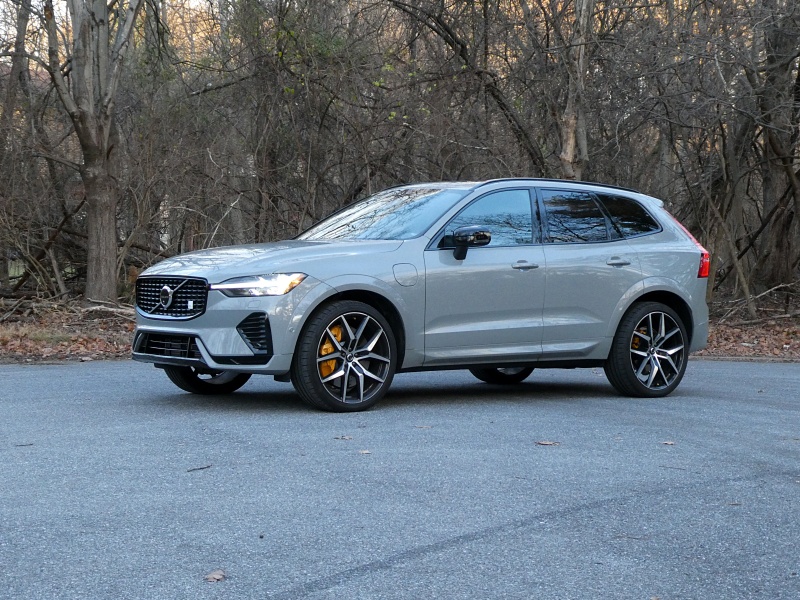
2025 Volvo XC60 PHEV Polestar Engineered ・ Photo by Brady Holt
Some luxury cars are built to wow you with incredible styling, features, performance, technology, and overall excess. Others make a different promise: If you pay extra for them, they’ll reward you with flawless competence.
That’s closer to the approach you’ll find with the 2025 Volvo XC60, a compact luxury crossover that’s priced from $47,050. Yes, you can get it with rich cabin trim, a fancy sound system, and powerful engines, but that’s not the main point of this Volvo SUV. We recently spent a week testing the 2025 XC60 to learn more about its pros and cons. Keep reading to learn whether it’s the right small luxury SUV for you.
Genteel Design
The current-generation XC60 debuted as a 2018 model, and it has seen only subtle design tweaks since then. It doesn’t scream to your neighbors “I bought a brand-new luxury SUV,” but it’s a quietly upscale design.
In the front, the XC60 uses Volvo’s “Thor’s hammer” headlights: an LED spear that runs through the middle of the headlamp, then pushes out to touch the front grille. Crisp but undramatic body creases dress up the lower door panels, while the body bulges out with subtle muscularity above the rear wheel. This latter element meets the taillamps where they slide in to run up the sides of the big rear windshield. The XC60’s whole body leans forward enough to give the crossover more presence, but not so much that it cuts badly into cargo space. Overall, this is a classy and attractive crossover that we think would be hard to hate.
Starting last year, Volvo dropped the “bright” color scheme that included more chrome on the bumper and grille, along with vertical grille slats. Every XC60 sold in the U.S. today, like our test vehicle, has the once-optional “dark” color scheme with a mesh-patterned grille. We preferred the chrome on the quietly classy XC60, but it seems customers were gravitating toward a subtly sportier look.
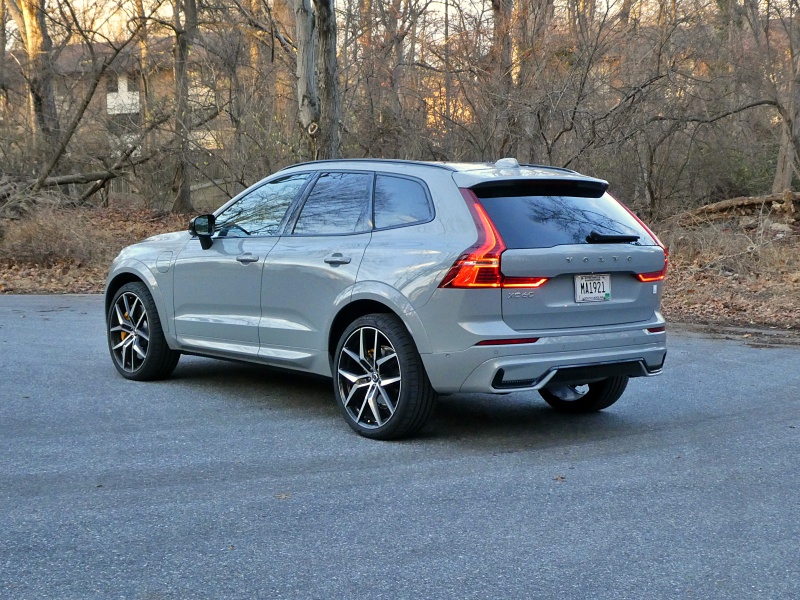
2025 Volvo XC60 PHEV Polestar Engineered ・ Photo by Brady Holt
Beautiful Interior
Volvo introduced its current interior design scheme back in 2016, and we still like the look. What’s more, because the company uses a similar design across its entire lineup, even the compact XC60 feels like a flagship. A vertical 9-inch touchscreen stands in the middle of the dashboard, while wood or metal trim gracefully flows around it – a fetching blend of gracious luxury and modern technology. Some shiny black plastic trim isn’t aging well, but other materials look and feel rich and contemporary.
Volvo’s infotainment system isn’t cutting-edge these days, either. Plenty of folks will prefer how Volvo smoothly integrates the screen into the dashboard rather than perching a bigger digital display up on the top, but others will want something bigger and flashier for their luxury bucks. Volvo does offset for the lack of dashboard screen space with an excellent digital gauge cluster, which can be set to present a Google Maps view.
You’ll find more physical buttons and knobs than in some modern luxury cars, which we appreciated both for the aesthetic and the functionality. Our main ergonomic complaint was for the heated seats and steering wheel. You tap a tiny area of the dashboard screen, which summons a menu to select your heat level. Physical buttons (or at least bigger digital ones) would be helpful in the cold.
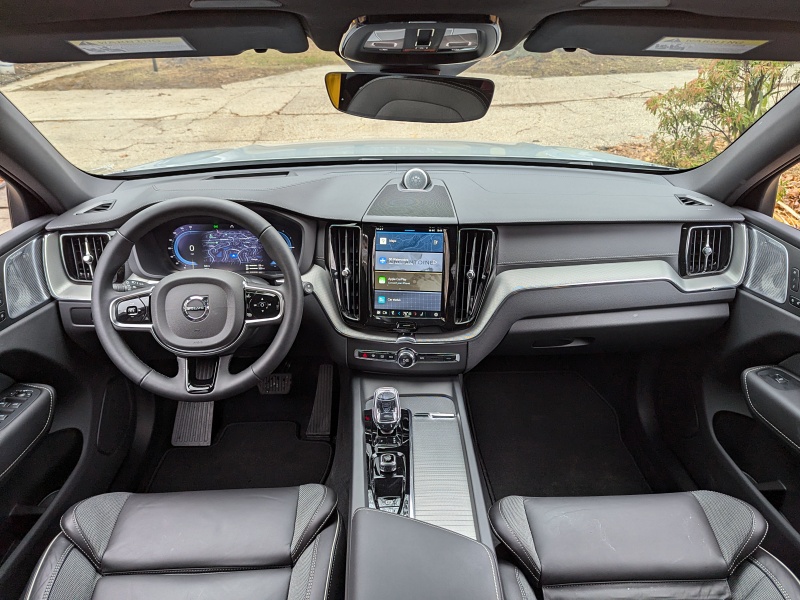
2025 Volvo XC60 PHEV Polestar Engineered ・ Photo by Brady Holt
Roomy and Comfortable Cabin
Compact crossovers have become the ride of choice for many families, and Volvo’s reputation for safety furthers the XC60’s appeal on this front. With its roomy and comfortable cabin, the XC60 is an appealing choice whether you’re shuttling kids or driving solo.
The front seats are comfortable and supportive, and one option is an unusual (and delightful) upholstery option: tailored wool, which blends authentic wool with recycled polyester for greater durability. It’s attractive, breathable, and refreshingly different. If that’s not to your tastes, though, traditional leatherette, genuine leather, and extra-rich Nappa leather are also on offer. The rear seat doesn’t have stretch-out legroom, but adults will fit fine.
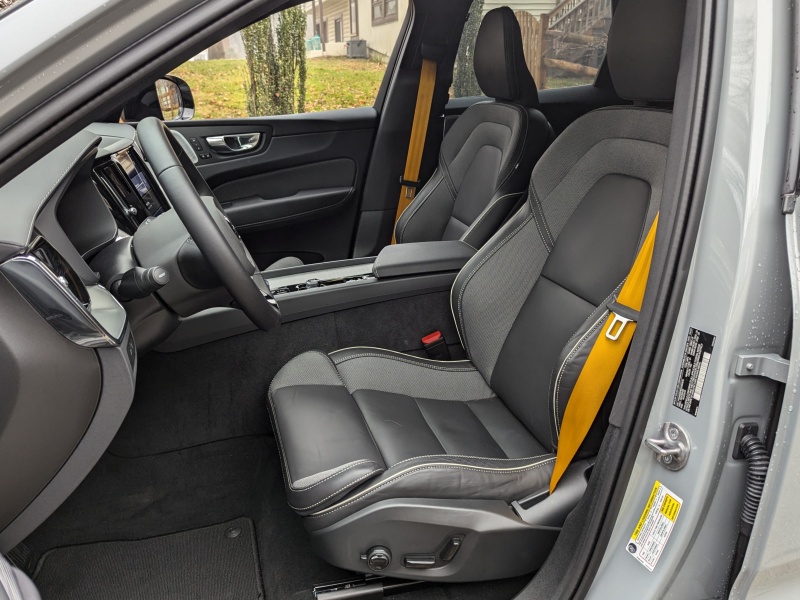
2025 Volvo XC60 PHEV Polestar Engineered ・ Photo by Brady Holt
Useful Cargo Capabilities
Volvo used to be known for its functional station wagons, and its SUVs have helpfully taken over that role. Some competitors have more than the XC60’s modest 22 cubic feet of cargo room behind the rear seat, but you do get an impressive 63 cubic feet with the rear seat folded down. And we were able to fit luggage for a family of four (including a stroller) behind the XC60’s backseat.
The XC60 can also tow a trailer weighing up to 3,500 pounds. The competing Audi Q5 and BMW X3 tow even more, but that’s still above average for a compact crossover.
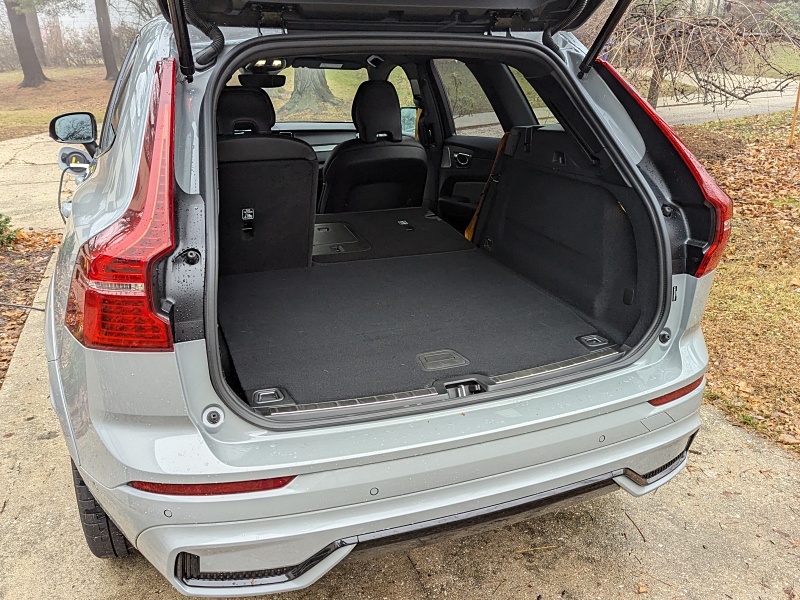
2025 Volvo XC60 PHEV Polestar Engineered ・ Photo by Brady Holt
Electrified Fuel Efficiency
The 2025 XC60 is available in a choice of two powertrains, both of which use electric assistance to boost their efficiency.
Most folks will buy the base B5 model, a turbocharged 2.0-liter four-cylinder engine that gets some extra boost from a small electric motor. In total, it makes 247 horsepower and 258 lb-ft of torque, and it reaches in a zippy 6.6 seconds. It also gets excellent EPA ratings of 23 mpg in the city, 30 mpg on the highway, and 26 mpg combined with its standard all-wheel drive – better than some far less powerful small crossovers.
We tested the XC60 Plug-in Hybrid (previously called the Recharge). Pairing a bigger electric motor with the same gas engine, it reaches a wild 455 hp and 523 lb-ft of torque. It takes a mere 4.5 seconds to reach 60 mph. Despite that power, its large electric battery helps boost its EPA estimate to 28 mpg even if you don’t take advantage of its plug-in capability. But we recommend you do, since that gets you an estimated 35 miles of all-electric driving before the gas engine is needed. This is enough for many folks to use no gas at all on their commutes.
We achieved 34 miles of electric range in chilly weather, while an XC60 PHEV we tested a few years ago topped 40 miles in milder conditions. Similarly, we averaged about 32 mpg during our previous test when we weren’t plugged in – yet only about 25 mpg this time around. That’s still good mileage for such a powerhouse. But if you aren’t attached to both the PHEV’s speed and its electric range, you might struggle to justify the PHEV's $12,000 price premium over the base B5.
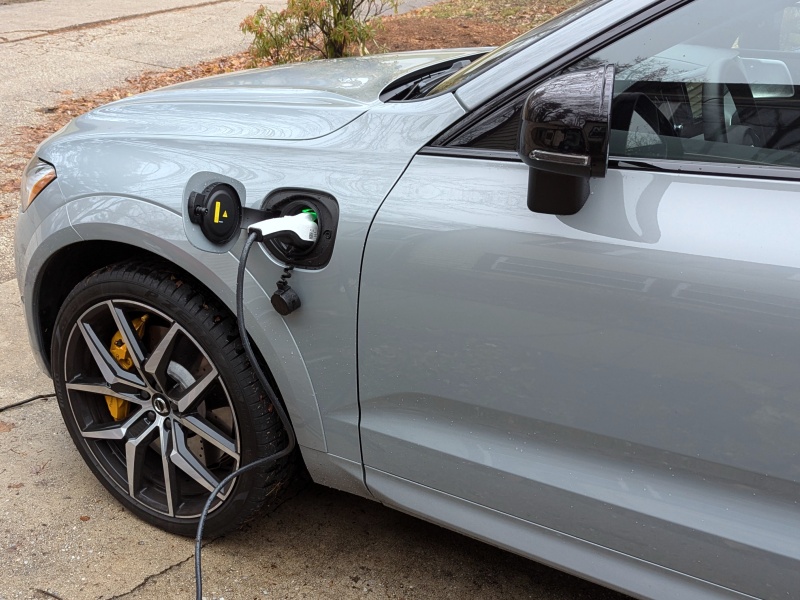
2025 Volvo XC60 PHEV Polestar Engineered ・ Photo by Brady Holt
Composure on the Road
The XC60’s driving manners distinguish it clearly from mainstream-brand SUVs. This isn’t a thrilling machine, but its supremely steady ride and handling provide high-end comfort and composure. An available air suspension helps even further, though as with all luxury cars, choosing oversized alloy wheels makes the ride stiffer. Our test vehicle was the Polestar Engineered trim level, exclusive to the PHEV, which has an adjustable sport-tuned suspension. We noticed little difference between driving this one and the last non-Polestar XC60 we tested.
This composure pairs nicely with the XC60’s capably speedy engines, as we discussed earlier. This is an SUV that doesn’t feel like it’s clumsy or working hard. And the XC60 PHEV is quicker than some sports cars if you jam your foot to the floor.
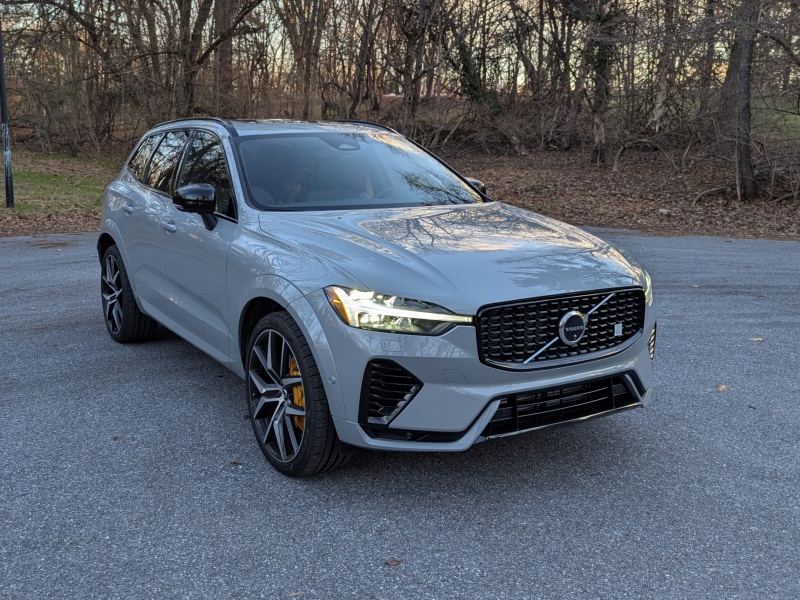
2025 Volvo XC60 PHEV Polestar Engineered ・ Photo by Brady Holt
Five-Star Safety
Volvo has long been known for safety, and the XC60 lives up to this reputation. It earned five out of five stars in crash-testing from the National Highway Traffic Safety Administration. It also did well in Insurance Institute for Highway Safety testing, including a tough new test that measures rear-seat safety in frontal-impact collisions. However, the XC60 shows its age by scoring just Acceptable (the second highest of four ratings) in the IIHS’s latest side-impact crash test.
Standard safety features keep pace with the times. Standard features include front and rear automatic emergency braking, blind-spot monitoring with a rear cross-traffic alert, and lane-keeping assistance with a lane-departure warning. And all but the base model add a surround-view parking camera and adaptive cruise control. Competitors have similar features, true, but sometimes only at an extra cost.
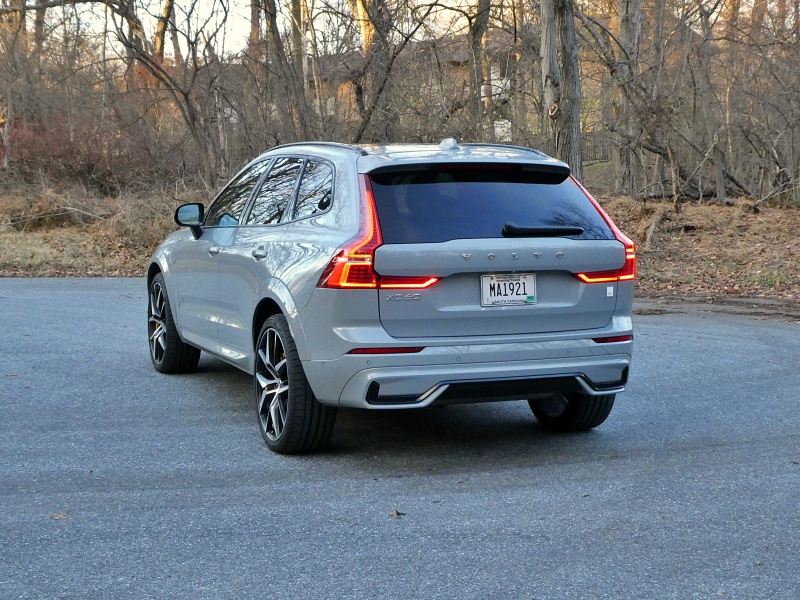
2025 Volvo XC60 PHEV Polestar Engineered ・ Photo by Brady Holt
XC60 vs. the Competition
Two of the XC60’s closest competitors are newly redesigned this year – the BMW X3 and Audi Q5. Like the latest Mercedes-Benz GLC, they amp up their tech focus with ever-growing digital displays, and to some tastes, they’re leaving the Volvo in the dust. Others will appreciate the XC60’s more traditional cabin.
We’re also fans of the roomy and fun to drive Genesis GV70 and the relaxed and affordable Lincoln Corsair. Even the mid-size Lincoln Nautilus, with a high-tech yet user-friendly interior, doesn’t cost any more than the XC60 – and it has a fuel-sipping hybrid powertrain. If you’re considering plug-in hybrids, the Lexus NX 450h+ has more range and better mileage but less room than the Volvo. And the new Mercedes GLC 350e PHEV has an incredible 54 miles of EPA-estimated range, though it doesn’t prioritize speed like the Volvo.
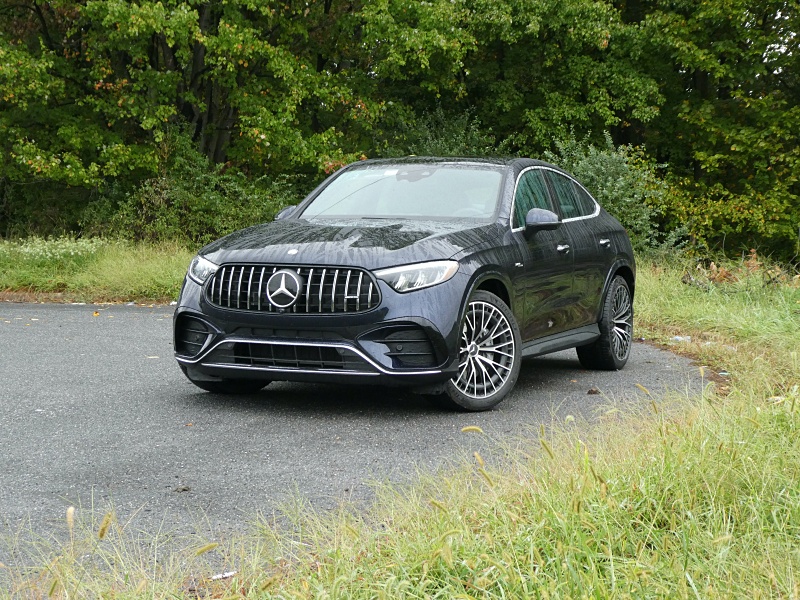
2024 Mercedes-Benz GLC43 AMG Coupe ・ Photo by Brady Holt
Final Thoughts
Some luxury SUV buyers will have no interest in paying top dollar for a Volvo, or they’ll prefer something with a more extroverted design or invigorating driving experience. That’s fine; there are plenty of excellent compact crossovers to meet those needs.
But if you’re looking for classy competence, gentility, and family-friendly comfort, safety, and utility, the XC60 should serve your needs well. The plug-in hybrid version offers gas-free commuting, and even the base engine is both peppy and fuel-efficient. And we do love that optional wool interior. The 2025 Volvo XC60 justifies its price tag and belongs on your compact luxury SUV shopping list.
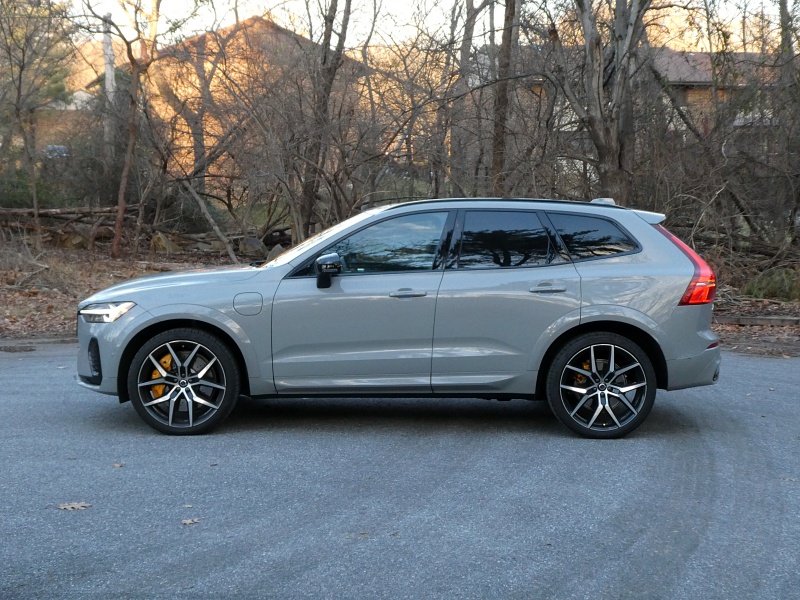
2025 Volvo XC60 PHEV Polestar Engineered ・ Photo by Brady Holt